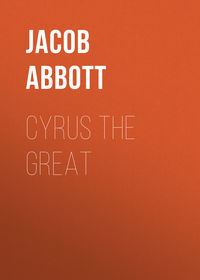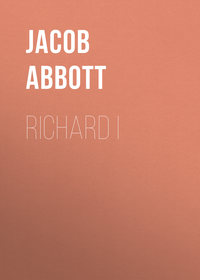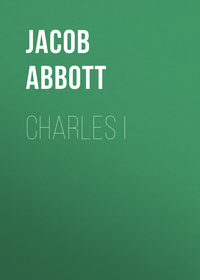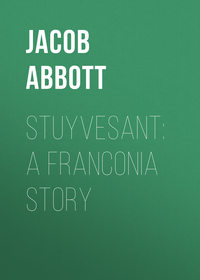
Jonas on a Farm in Winter
The next evening, at eight o'clock, Isabella put up her spinning, and took a seat by the fire, to hear Jonas's plan. Amos sat by a table at the back side of the room. The farmer's wife was sitting upon the settle, knitting; and the farmer himself was asleep in his arm-chair, at the opposite corner.
"Now," said Jonas, "I like the plan of having an evening school, and I am willing to be either teacher or pupil; only, if I am teacher, I must direct, and you must both do as I say."
"No," said Isabella, "you mustn't direct entirely; we'll talk over the plans, all together, and then do as we all agree."
"No," said Jonas, "I have no idea of having all school-time spent in talking. I'm perfectly willing that either of you should be teacher, and I'll obey. I'll set copies, or do any thing else you please, only I won't have any responsibility about the arrangements. Or, if you wish, I'm willing to be teacher; but then, in that case, I must direct every thing, just as I think is best,—and you must do just as I say."
"Well," said Isabella, "what are your orders? We'll obey."
Amos and Oliver also agreed that they would obey his directions. Jonas then consented to take the station of teacher, and he proceeded to give his directions.
"I have been looking at the books," said he, "and I find we haven't got but one of each kind."
"Then we can't have any classes in our school," said Oliver.
"Yes we can," said Jonas. "The first evening, Amos may take the arithmetic and the slate, and cipher, while Isabella writes, and Oliver studies a good long spelling lesson. Then, the second evening, Amos shall study the spelling lesson, and Isabella cipher, and Oliver write."
"But I don't want to cipher," said Isabella. "I don't like arithmetic; I never could understand it."
"You promised to obey my orders," said Jonas.
"Well," said Isabella, "I'll try; but I know I can't do the sums."
"Then, the third evening," said Jonas, "Isabella shall study the spelling lesson, Oliver the arithmetic, and Amos take the writing-book."
"What, ain't you going to have but one writing-book?"
"No," said Jonas; "one is enough; because you won't all write the same evening. So you can write one page, Oliver another, and Amos the third."
"No," said Isabella; "I don't like that. I want every scholar to have his own book."
"If you'll be the teacher," said Jonas, "you can have it so."
"But I want to have it so, and you be the teacher," said Isabella.
"No," said Jonas; "if I have the responsibility of teacher, I must have the power too."
"Well," said Isabella, "I suppose we had better submit."
"But what's the reason, Jonas," said Oliver, "that you ain't willing that we should all have writing-books of our own?"
"There are two or three reasons," said Jonas. "But it is very poor policy for a schoolmaster to spend his time in convincing his scholars that his regulations are good. He must make them obey, and let them see that the regulations turn out to be good in the end."
"But it seems to me, you've grown arbitrary all at once," said Amos, with a smile.
"Yes," said Jonas, "I'm always arbitrary when I'm in command; if you mean, by arbitrary, determined to have my own way. I won't usurp any power; but, if you put it upon me, I shall use it, you may depend upon it."
Jonas had two good reasons why he wanted to have only one writing-book for all his scholars. One was, that he thought it uncertain how long their school plan would last, and he did not want to trouble the farmer to look up some paper, and then make a parade of preparing so many writing-books; and then, perhaps, the whole plan might be abandoned, when they had written four or five pages in each. And, therefore, as he found one old writing-book of Oliver's, half full, he determined to make the blank leaves of that answer for all.
But he had another reason still. He thought that, if all his scholars should write, in succession, in the same book, their writing would come into such close juxtaposition and comparison, that each one would be stimulated to write with greater attention and care; as each one would wish his or her own page to look as neatly written as the rest. He knew that Isabella, when it came to her turn to write, would naturally, without any thing being said, look at Amos's work on the page before, and that she would observe its excellences and its faults, and that her page would probably be written better, in consequence of her criticism upon his.
Thus, though Jonas had good reasons, he chose not to give them. He preferred, if he was going to be teacher, that they should not be in the habit of expecting him to give reasons for all his directions. So he simply expressed his decision upon the subject, by saying,—
"You may do just as you please about making me teacher; but, if you put me into the office, you must expect to have to obey."
"That's right, Jonas," said the farmer's wife: "I am glad to see you make 'em mind."
It was settled, without any further discussion, that Jonas's plan in regard to the writing should be adopted, and that his scholars would obey his directions in other things, whatever they might be. Jonas then proceeded as follows:—
"Now, you see that, if we go on so three evenings, you will all have got three lessons, and the fourth evening we will have for recitation. I will hear you spell, and examine your writing, and see if your sums are done right."
Jonas's exposition of the plan of his school was here interrupted by the farmer's wife, who, as she sat at the end of the settle towards the fire, had her face somewhat turned towards the window, and she saw a light at a distance near the horizon.
"What light is that?" said she.
Jonas and all his school rose, and went to the window to see.
The window looked towards the pond. They looked off across a sort of bay, beyond which there was a long point of land,—the one which the boys had had to sail around when they went to mill. Just over this land, and near the extremity of it, a light was to be seen, as if from a fire, beyond and behind the land.
"That's exactly in the direction of the village," said Amos.
"It is a house on fire, I know," said Oliver,—"or a store."
"It looks like a fire, certainly," said Jonas.
"Yes," said the farmer's wife; "and you must go, boys, and help put it out."
"It is several miles off," said Amos.
"Yes, but put Kate into the light sleigh, and she'll carry you there over the pond in twenty minutes.—Here, husband, husband," she continued, calling to the farmer, who was still asleep in his chair, "here's a fire."
The farmer opened his eyes, and sat upright in his chair, and asked what was the matter.
"Here's a fire," she repeated, "over in the village; hadn't the boys better go and put it out?"
The farmer rose, walked very deliberately to the window, looked a minute at the light, and then said,—
"It's nothing but the moon."
"The moon?—no, it can't be the moon, husband," said she. "The moon don't rise there."
"Yes," said the farmer, "that's just about the place."
"Besides," said she, "it isn't time for the moon to rise. It don't rise now till midnight."
He turned away, and walked slowly across the room, to where the almanac was hanging. He seemed very sleepy. He turned over the leaves, and then said, "Moon rises—eight hours and fifty minutes; that is,—let's see,—ten minutes before nine."
"Well," said his wife, "and 'tisn't much past eight now."
"It's the moon, you may depend," said the farmer; "perhaps our time is a little out." So he returned to the chair, sat down in it, and put his feet out towards the fire.
"Well," said his wife, "we shall know pretty soon; for, if it is the moon, it will soon rise higher."
So they all stood a few minutes, and watched the light. It seemed to enlarge a little, and to grow somewhat brighter; but it did not move from its place.
"It certainly must be a fire," said the farmer's wife again; "and I wish, husband, that you'd let the boys take Kate in the sleigh, and go along the pond and see."
"I've no objection," said the farmer, "if they've a mind to take that trouble; but they'll find nothing but the moon, they may depend."
"Let's go," said Amos.
"Very well," said Jonas; "I'm ready."
"We'll go too, boys," said the farmer's wife, "Isabella and I. You can put in two seats. There are no hills, and Kate will take us all along like a bird. I never saw a fire in my life."
The boys hastened to the barn, and got Kate out of the stall. Franco, who knew that something extraordinary must have taken place, though he could not tell what, came out from his place, leaped about, and indicated, by his actions, that, wherever they were going, he meant to go too.
The sleigh was soon harnessed. They drove up to the door, and found Isabella and her mother all ready. They took their places upon the back seat, while Amos and Jonas sat upon another seat, which they had placed in, before. Oliver came running with a bucket, which he put in under the forward seat, and then he jumped on behind, standing upon the end of the runner, and clinging to the corner of the sleigh, close to Isabella's shoulder.
Kate set off at a rapid trot down the road, which led to the pond. The sleigh went very easily, for the road was smooth. There had been rain and thaws lately, and cold weather after them, so that the surface of the road had melted, and then become frozen again; and this made it icy. They found the ice of the pond in the same state. The rain and the thaws had melted the snow, upon the top of the ice, and made it a sheet of water. Then this had frozen again, so that now the surface of the pond was almost every where hard and smooth; and when they came down upon it, and turned to go across the bay, the horse being at his full speed, the sleigh swept round sideways over the ice, in a great circle, and made the farmer's wife very much afraid that she should be upset. It seemed as if the sleigh was trying to get before the horse.
However, Amos, who was driving, contrived to get the horse ahead again, and then they went on with great speed. It was a mile across to the end of the point of land; but Kate carried them over this space in a very few minutes. As they drew near to the point, they watched the light. It did not rise at all.
"It cannot be the moon," said Jonas, "for it is now full a quarter of an hour since we first saw it."
"Yes," said the farmer's wife, "I knew it couldn't be the moon."
Just at this moment, the sleigh came around the point with great speed, and brought into view a very bright but distant fire, far before them.
"It is a fire!" they all exclaimed.
"But it isn't in the direction of the village," said Jonas.
"It must be some farm-house," said the farmer's wife, "on the shore."
"No," said Jonas, "I think it is on the ice."
It very soon became evident that the fire was upon the ice. It was plainly a large fire, though the distance made it look rather small. It was very bright, and it flashed up high; and a cloud of illuminated smoke arose from it, and floated off to the northward. The party in the sleigh could soon perceive, also, a number of small, bright spots near it, which seemed to be in motion about the fire. They looked like the moons about the planet Jupiter, seen through a telescope.
"I wonder what it is," said Isabella.
"I presume," said Jonas, "that the boys are out skating, and this is a fire on the ice, which they have built."
"And are those the boys moving about?" asked Oliver.
"Yes," said Jonas. "When they are near the fire, the light shines upon their faces."
As they rode on, it became gradually more and more evident that Jonas was right. The forms of the skaters, as they stood before the fire, or came wheeling up to it, became more and more distinct, and, in fact, the ringing sound of the skates soon became audible. The horse, in the mean time, went on, with great speed, directly towards the fire. When they arrived near the fire, the skaters came around them in great numbers, wondering who could have come. Jonas asked them where they got the wood to build their fire.
"All along the shore," said a large boy, with a long stick in his hand. "Let's go and get some more, boys," he added, "and brighten up our fire."
So saying, he wheeled round and skated away, the whole crowd of skaters, small and great, following him at full speed. As they swept round by the fire, the light glared brightly upon their faces and forms, but they soon disappeared from view in the darkness beyond; only Jonas could hear the sound of their skates, ringing over the ice, as they receded.
"What a great, hot fire!" said Oliver.
"Yes," said Isabella, "I never saw such a large fire on the ice. I don't see how they got all the wood."
"I suppose," said Jonas, "that they got out the wood from the forest, along the shore, and threw it out upon the ice, before they put on their skates, and then they could easily bring it to the fire. But hark! they are coming back again."
The fire was so bright where they were, and it flashed so strongly upon the ice around, that they could not see the skaters until they came pretty near. The dark figures, however, soon began to appear. The foremost was a tall young man, who came forward with great speed, pushing before him a long and slender log, half decayed and dry. One end he held before him in his hands, and the other glided along upon the smooth ice towards the fire.
There followed close behind him another skater, with the fragment of an old stump upon his shoulder; then several others, with branches, sticks, dry bushes, and fragments of every shape and size. These they piled upon the fire as they swept up alongside of it, and then wheeled away back from the heat which radiated from it. Two large boys came on, bringing a long log between them, one at each end. It looked large, but it was really not very heavy, as it was hollow and decayed. They hove it up, with great effort, upon the fire, and its fall upon the heap threw up a large, bright column of sparks and flame. Another boy had the top of a young spruce, which he had cut off with his knife, by dint of great labor; it made a great roaring and crackling when it was put upon the fire. And, finally, behind all the rest, there came a little boy not so big as Oliver, tugging away at a long branch, which he dragged behind him, and put it upon the fire too.
"Well," said the farmer's wife, after a little time, "we mustn't stay here much longer."
"We'll drive around the fire, in one great sweep," said Jonas.
So he started the horse on, and took a great circuit about the fire. The skaters went with him on each side of the sleigh. Then they turned their course towards home again. The light of the fire shone upon the distant point of land, and illuminated it faintly, but in a very beautiful manner, and showed Jonas which way to drive.
Isabella turned back her head repeatedly, to look at the fire, as they rode on and left it far behind them. It seemed to grow smaller and smaller, as they receded; and at length, when Jonas turned around the point of land, it disappeared entirely. In a few minutes afterward, the moon arose, and lighted them the rest of the way home.
CHAPTER VIII. THE CARDING-MILL
Jonas was often sent away to transact business for the farmer. He was a very excellent hand to do business. It requires several qualities to make a boy good at business. He must be gentlemanly in his manners, so as to speak to the persons that he is sent to, in a respectful and proper manner; he must be faithful, so as not to neglect what is intrusted to him; and he must be patient and persevering. Then he must also have considerable judgment and discretion; for when he is sent away from home on business, he must often be placed in circumstances that are unforeseen, and where he must act without instructions. In such cases, he will have to exercise his own judgment and discretion. Jonas was placed in such circumstances at one time, when he was sent to the carding-mill to get some rolls for Isabella.
The rolls which Isabella wanted were rolls of wool, as they are prepared at the mill ready for spinning. The wool is carded very fine, and then, by curious machinery, it is rolled out into rolls about three feet long, and as large round as a whip-handle at the middle. These rolls Isabella used to spin into yarn, at her spinning-wheel.
Isabella had spun nearly all her rolls, and she wanted Jonas to carry some wool to the carding-mill, and get some more. The carding-mill was not in the village upon the outlet stream; but it was upon another stream, which emptied into the pond, instead of flowing from it. It was the same stream that flowed by the land which Jonas and Oliver had cleared when he first came to live with the farmer; only the mill was at some distance from the mouth of the stream, back towards the high land. It was more than two miles, by the road, from the farmer's house.
The farmer told Jonas where to get the wool, and then gave him some more business, at a place in the woods, about two miles beyond the mill. Oliver wanted to go too, and his father gave him leave. Oliver always liked to go to the mill, as the machine for carding the wool was a great curiosity.
Jonas put up the wool in a very large bundle, which almost filled up the bottom of the sleigh. Jonas himself sat upon the seat, with his feet under the bundle; but Oliver sat upon the bundle. He said it made a very soft seat.
They rode along pleasantly towards the mill. The snow-drifts were very high in some places on each side of the road; and the fences and walls were almost buried up.
"I wish that Josey was here," said Oliver. "I think that he would like to see the carding-mill very much indeed."
"Yes," said Jonas.
"Only," replied Oliver, "perhaps it would be dangerous to take him."
"Why?" said Jonas.
"Why, because," said Oliver, "I suppose he would touch the machinery, and perhaps get his hands torn off."
"Yes," said Jonas, "boys sometimes do get very badly hurt in mills,—careless and disobedient boys especially."
"I think that he is a careless and disobedient boy," said Oliver. "Yes, but it is his misfortune, rather than his fault," replied Jonas.
"His misfortune?" repeated Oliver.
"Yes," said Jonas; "his father's situation is such, that it is very unfortunate for him. I expect he is very unhappily situated at home, in many respects."
"How?" said Oliver.
"Why, in the first place," said Jonas, "he lives, I'm told, in a large and handsome house."
"Yes," said Oliver.
"And then," continued Jonas, "your aunt, I have heard, is a very fine woman, and has a great deal of company."
"Well," said Oliver.
"And then," continued Jonas, "they can buy Josey any thing he wants, for playthings."
"Yes," said Oliver; "he told me he had got a rocking-horse. But I don't call that being unfortunate."
"It is very fortunate for the father and mother, but such a kind of life is generally unfortunate for the child. You see, if a man has been industrious himself, when he was a boy, and has grown up to be a good business man, and to acquire a great deal of property, and builds a good house, and has plenty of books, and journeys, it is all very well for him. He can bear it, but it very often spoils his children."
"Why does it spoil his children?" asked Oliver.
"In the first place, it makes them conceited and vain,—not always, but often. The children of wealthy men are very often conceited. They wear better clothes than some other boys, and have more books and prettier playthings; and so they become vain, and think that they are very important, when, in fact, they owe every thing to their fathers.
"Then, besides," continued Jonas, "they don't form good habits of industry. Their fathers don't make them work, and so they don't acquire any habits of industry, and patience, and perseverance."
"If I was a man, and had ever so much money," said Oliver, "I would make my boys work."
"That is very doubtful," said Jonas.
"Why is it doubtful?" asked Oliver.
"Because," said Jonas, "you would be very busy, and couldn't attend to it. It would be a great deal more trouble to make your boys do any thing, than it would be to hire another man to do it; and so you would hire a man, to save your trouble."
"Yes; but then, Jonas, farmers are very busy, and yet they make their boys work."
"True," replied Jonas; "but farmers are busy about such kind of work as that their boys can help them do it,—so they can keep them at work without any special trouble. But men of property are employed in such kind of business as boys cannot do; and so they must work, if they work at all, at something else; and that makes a good deal of trouble."
"Then I'd send my boys to some farmer, and let him make them work," said Oliver.
"Yes," said Jonas, "that would do pretty well."
So saying, Jonas stopped the horse a moment, and stepped out of the sleigh. He was at the foot of a long, steep hill in the woods. He was going to walk up. Oliver remained in the sleigh, and rode. When they reached the top, Jonas got in again, and they rode on.
"But then, Jonas," said Oliver, "there is one thing to be thought of, and that is, that rich men's sons will not have to work when they grow up; and so they don't need so much to grow industrious."
"O, yes, they will," said Jonas.
"Why, Josey told me that he didn't expect to work when he should be a man."
"No, he doesn't expect to work, but he'll find that it is different from what he had expected, when he grows up."
"How?" said Oliver.
"Why, a great many rich men's boys find, when they get to be twenty-one, that they have to go out into the world, and earn their own living, without any money."
"Why?" said Oliver; "won't their fathers give them any money?"
"Their fathers cannot generally give them enough to support them," said Jonas, "even if they are disposed to do it; because, you see, they have their own families still to support. Besides, if they were to divide their property at once among all their children, it would only be a small portion for each one. It wouldn't be enough for the boys to live as expensively as they have been living while at home. Therefore, as fast as they grow up young men, they have to go away into the world, and earn their own money by some kind of work, head work or hand work."
Jonas would probably have given Oliver some further explanations on this subject, were it not that about this time they arrived at the mill. Oliver tied the horse at a post, while Jonas took out the great bundle of wool, and went in. Oliver followed immediately after him.
The machinery made a heavy, rumbling sound, which grew louder and louder as the boys went up stairs. Jonas opened a door into a large room, and at this the noise increased very loudly, so that Oliver and Jonas could hardly hear each other talk. Jonas put down the bundle of wool by the door, and then he and Oliver went in among the wheels and machinery. There were a great many separate machines at different parts of the room, with girls tending them. There was a large, round beam of wood, overhead, slowly revolving. There were wheels upon it in different parts, with straps passing around these wheels, and also around other wheels connected with the machines below.
Oliver saw Jonas walk to a man who was writing at a desk in the corner of a room, and say something to him. Oliver could not hear what it was. Jonas pointed, while he was talking to the man, to the great bundle of wool. Presently the man came and took the bundle of wool, and dragged it off to one of the machines, which was not in motion. He called a girl to come and tend it.
At one end of the machine was a broad band of cloth, passing around two rollers. One roller was close to the wheels and other large rollers of the machine itself. The other was back from it a little; and the cloth, being extended from one of these to the other, formed a sort of flat table just before the machine.
The girl who came to tend the machine immediately opened the great bundle of wool, and then she took up a handful of it, and began to spread it evenly over the cloth. When she had got the cloth pretty nearly covered she pulled a handle pretty near her, and that, in some mysterious way or other, set the machinery a-going. The cloth, with all the wool upon it, began to move towards the great rollers of the machine. These rollers were covered with card teeth, and the wool, as it was drawn in between them, was carded fine, and spread evenly over all the surface; and in a few minutes Jonas and Oliver found that it began to come out at the other end, in the shape of rolls. One roll after another dropped out, in a very singular manner. Oliver thought that it was a very curious machine indeed, to take in wool in that way at one end, and drop it out in beautiful long rolls at the other.









